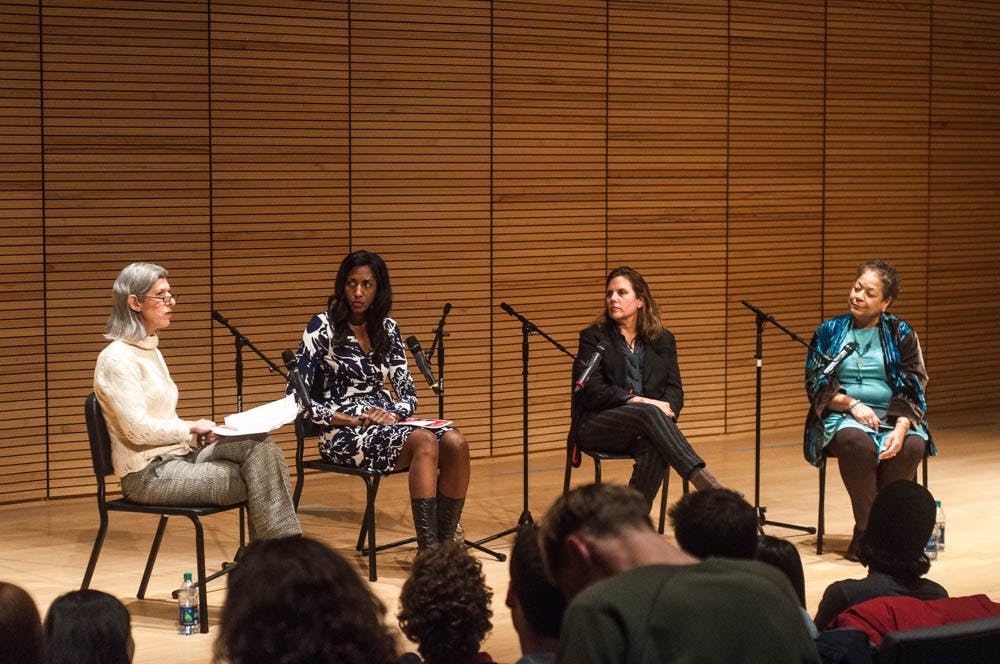Martinos Auditorium at the Granoff Center for the Creative Arts hosted the “The Audience in Revolt: Gender, Race and Representation in Hollywood,” a panel discussion Friday about diversity in Hollywood sponsored by the Ivy Film Festival and the Pembroke Center for Teaching and Research on Women.
The panel featured Mia Mask, an associate professor of film at Vassar College; Michelle Materre, an independent media consultant and Lydia Dean Pilcher P’17, a film and television producer. The panel was moderated by Lauren Zalaznick ’84 P’17 P’19, a former NBCUniversal executive. The panel spoke from personal experience on topics ranging from identity politics to Hollywood marketing.
Zalaznick opened the discussion referencing the #OscarsSoWhite controversy this year, asking her panelists to comment on why they thought the movement gained as much momentum as it did.
The #OscarsSoWhite movement built off the national debate surrounding the Black Lives Matter movement and widespread student protests on campuses across the country, Mask said. She also pointed to social media as a way that the movement captured the public imagination.
Pilcher also highlighted the advent of big data as a game-changer, explaining how statistics allowed people to debunk myths about diversity propagated by executives who greenlight films.
“The numbers don’t lie,” Zalaznick agreed, pointing out that diversity in Hollywood has been trending downwards since the 1970s. She then asked her panelists how they discuss underrepresentation within the film industry in their respective classes.
Mask said that millennial viewers do not seek to have their tastes validated by Hollywood and are happy to look elsewhere.
Television is generally more accessible in terms of diversity than Hollywood, Pilcher said, adding that “diverse content can be profitable” in that field.
During the question-and-answer portion of the event, a student in film school pointed out that student film festivals also encounter the same challenges to diversity that Hollywood does. In light of the fact that the majority of student-produced film “is directed by white men,” she asked the panelists how she could affect change within the Brown bubble.
“As a student, you have a lot more power than you think you have,” Materre replied, adding that students could advocate for training against subconscious bias on an institutional level.
“People are having these conversations, but that is not always informing practice,” Mask said. On an individual level, she encouraged students to break out of traditional film school curricula and explore diverse storytelling and cinematographic styles. “You need to go out and develop an aesthetic that is countercultural,” Mask added.





